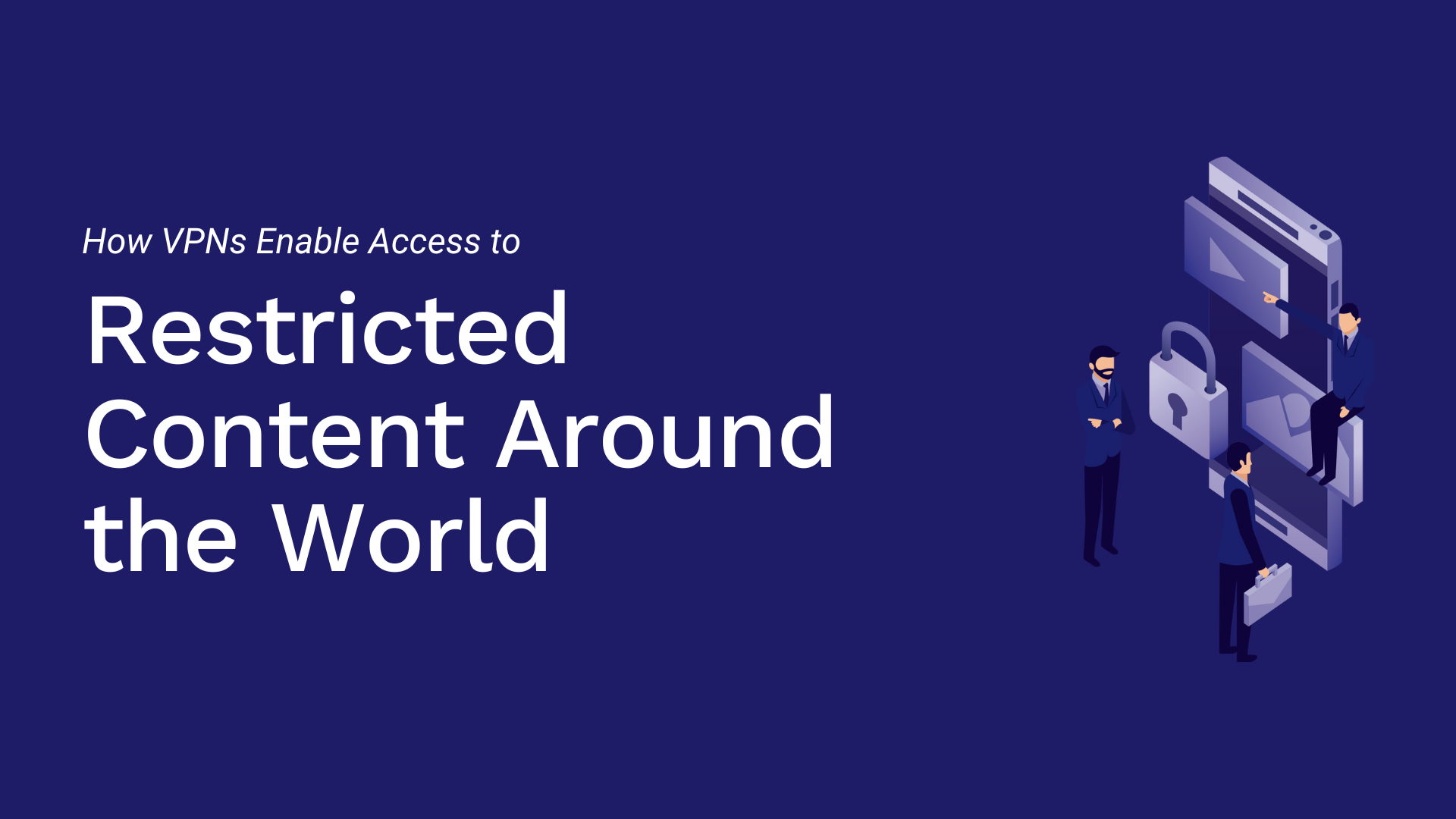
How VPNs Enable Access to
Restricted Content Around the World
The internet promises a world of information, communication, and connectivity, but in reality, its accessibility is often limited by regional restrictions, censorship, and geo-blocking. A VPN (Virtual Private Network) offers a way to bypass these barriers, granting users access to content that might otherwise be unavailable based on their location. Whether you’re navigating restrictions imposed by authoritarian regimes or trying to access content from a restricted source, VPNs are a powerful tool for freedom and exploration.
This article delves into how VPNs enable access to restricted content in two key scenarios:
- From a restricted jurisdiction to the free world
- From the free world to a restricted source
1. From a Restricted Jurisdiction to the Free World
Many countries impose heavy restrictions on internet access, blocking websites, censoring information, and monitoring user activity. This can limit access to free information, social media platforms, and global communication tools. A VPN can circumvent these restrictions by masking a user’s location and encrypting their internet traffic.
How It Works
- Changing IP Address:
By connecting to a VPN server in another country, users obtain an IP address from that region. This makes it appear as though they are browsing from a less restricted location.
- Bypassing Censorship:
A VPN encrypts all traffic, making it unreadable to government firewalls and surveillance systems. This allows users to access blocked websites and apps, such as Google, YouTube, or Facebook.
Examples of Restricted Jurisdictions
- China: The "Great Firewall" blocks Google, WhatsApp, and most Western social media. A VPN allows users to bypass these restrictions and access global platforms.
- Iran: Many Western news sites, apps, and social media channels are banned. A VPN can grant users access to unbiased news and communication tools.
- North Korea: Internet access is tightly controlled, with citizens only able to access a government-approved intranet. While rare, VPNs help foreign visitors access global internet services.
Benefits of Using a VPN in Restricted Jurisdictions
- Access to Uncensored Information: Stay informed with unbiased news and information.
- Freedom of Communication: Use global apps and social media to connect with friends, family, and colleagues.
- Anonymity and Privacy: Protect against government surveillance and data tracking.
2. From the Free World to a Restricted Source
Even in countries with open internet policies, users may face challenges accessing content that is region-specific or intentionally restricted to particular locations. A VPN can help individuals in free jurisdictions engage with restricted content sources securely.
How It Works
- Simulating a Local Presence:
Connecting to a VPN server in the restricted region assigns a local IP address, granting access to content as if the user were physically in that location.
- Avoiding Geo-Restrictions:
Content providers often impose licensing restrictions that limit access to specific regions. A VPN bypasses these barriers by masking the user’s real location.
Examples of Restricted Sources
- Country-Specific News Websites: Some governments restrict access to their media for international audiences.
Example: Iranian or Chinese state media websites.
- Streaming Services: Platforms like BBC iPlayer or Hulu are accessible only within their home countries. A VPN helps users access these platforms from abroad.
- Academic Resources: Some research databases and government archives are limited to local IPs. A VPN grants international users access to these resources.
Benefits of Using a VPN to Access Restricted Sources
- Cultural and Educational Insight: Understand regional perspectives by accessing local news and media.
- Entertainment Access: Watch region-exclusive shows and movies.
- Professional Research: Access government data, academic journals, or other region-specific information for study or work.
Choosing the Right VPN
When selecting a VPN to access restricted content, prioritize the following features:
- Wide Server Coverage: Ensure the VPN has servers in the regions you need to access.
- Strong Encryption: Protect your traffic with protocols like OpenVPN or WireGuard.
Obfuscation Technology: This feature disguises VPN traffic as regular internet activity, bypassing VPN blocks.
- No-Logs Policy: Protect your privacy by choosing a provider that does not store user activity data.
- Fast Speeds: Look for a VPN with high-speed servers to ensure smooth streaming and browsing.
Conclusion
VPNs serve as a digital bridge, breaking down barriers to information and fostering global connectivity. Whether you're escaping censorship in a restricted jurisdiction or accessing region-specific content from a free location, a VPN empowers you to explore the internet freely and securely.

 Cart is empty
Cart is empty